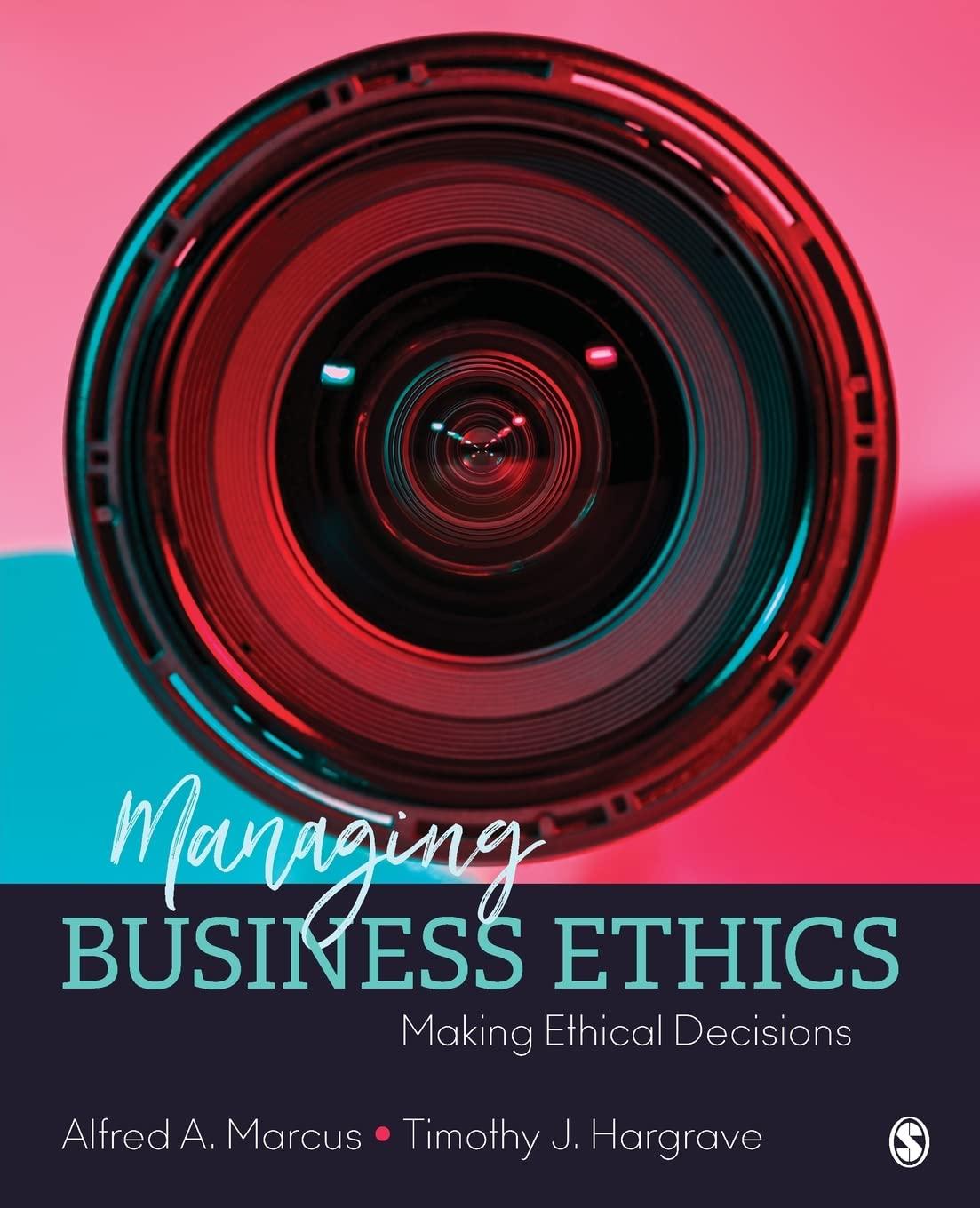Question
Hundreds of McDonald's employees in 10 U.S. cities recently staged a series of strikes to call attention to the prevalence of sexual harassment at work
Hundreds of McDonald's employees in 10 U.S. cities recently staged a series of strikes to call attention to the prevalence of sexual harassment at work and to urge the company to take more active steps to prevent it. "This is more important than work," said one Kansas City employee who experienced harassment and skipped her shift to participate in that city's rally. "We have the strength to protect one another and demand the justice we deserve," she told the crowd.
With historically low wages and a large share of the workforce, one that consists predominantly of women and young adults, the restaurant industry and the fast-food industry in particular employ many people typically vulnerable to rights violations. Four in 10 female employees in these sectors report having received unwanted sexual advances, and nearly 3 in 10 report various forms of harassment. The majority, including 90 percent of immigrant workers, keep quiet about such offenses, and many are unaware that they are legally entitled to protection and recourse.
The recent protests, organized by a labor rights group called Fight for $15, were intended to draw public attentional to employee's dissatisfaction with McDonald's response complains. "what McDonald's does on this issue, how they choose to treat it, how they act on it proactively, will have influence on other stores," said a lawyer for the workers. Among workers' demands are better training, more effective ways to file complaints, and an employee committee specifically empowered to look into sexual misconduct issues at the company's 14,000 stores.
Ten McDonald's workers have already filed sexual harassment and retaliation complaints against male supervisors with the Equal Employment Opportunity Commission (EEOC). Nearly 30 other employees claim they have been harassed at work. Two enforcement problems specific to the restaurant industry are that employees often depend on tips, making it difficult for them to challenge poor customer behavior, and the franchise structure of the fast-food sector, which large companies may feel absolves them from any responsibility for employee relations at individual stores. Workers want McDonald's to take a bigger role in setting human resource policies at the franchise level, believing this will extend needed protections to employees of franchise businesses that may not have a human resource department or a safe process for handling complaints about workplace harassment. As the lawyer quoted above observed, McDonald's is a huge company and easily capable of doing this effectively if it chooses to. McDonald's statement said, "We have strong policies, procedures and training in place specifically designed to prevent sexual harassment. To ensure we are doing all that can be done, we have engaged experts in the areas of prevention and response." Employees, however, say nothing is being done.
1: What is the problem in this case 2: Identify the causes of the problem. 3: Make a recommendation to correct the situation.
At least a couple paragraphs per question!
Step by Step Solution
3.51 Rating (148 Votes )
There are 3 Steps involved in it
Step: 1
1 Problem The primary issue in this case is the prevalence of sexual harassment in McDonalds and the fastfood industry leading to employee dissatisfaction and protests demanding better measures to add...
Get Instant Access to Expert-Tailored Solutions
See step-by-step solutions with expert insights and AI powered tools for academic success
Step: 2

Step: 3

Ace Your Homework with AI
Get the answers you need in no time with our AI-driven, step-by-step assistance
Get Started


